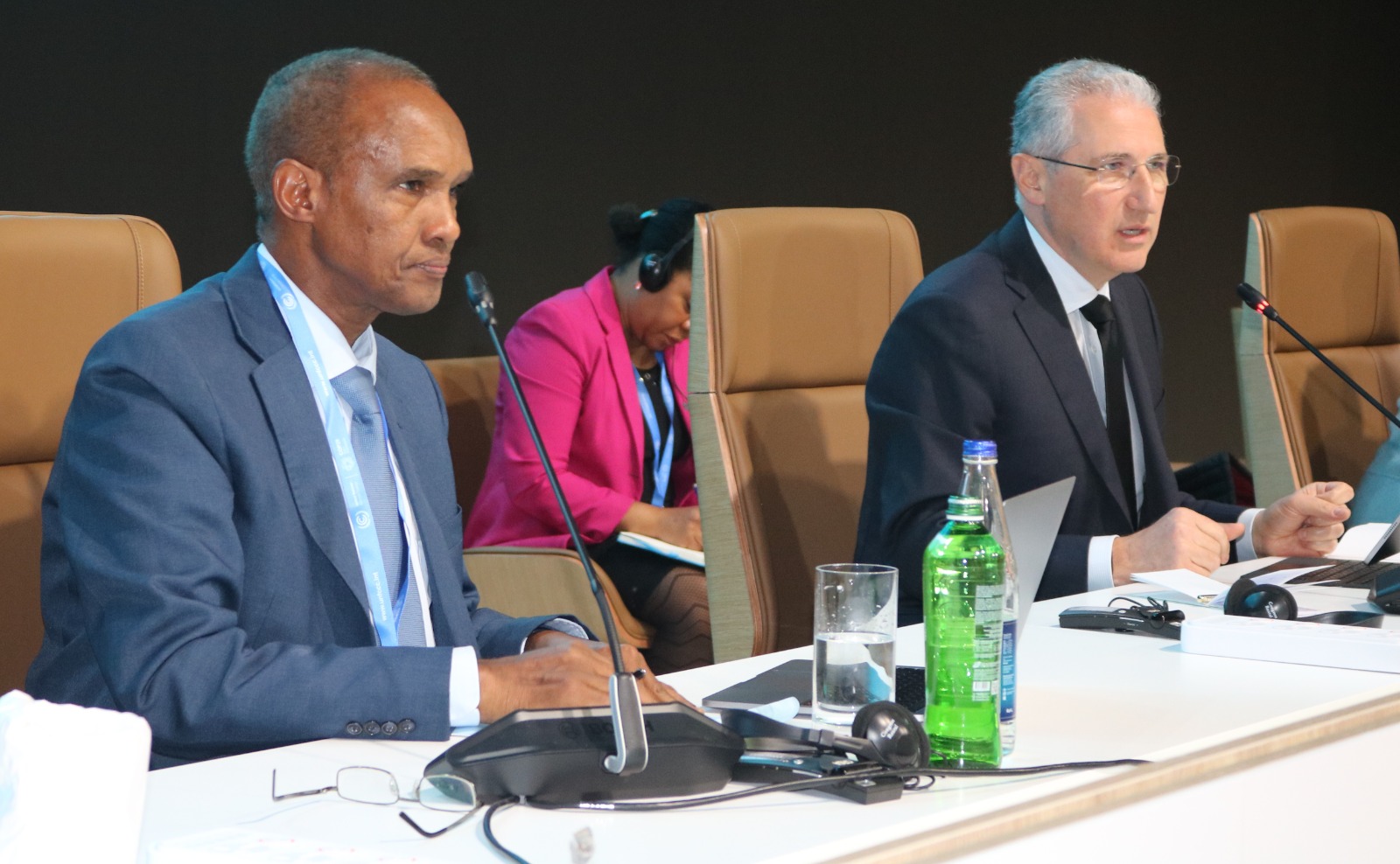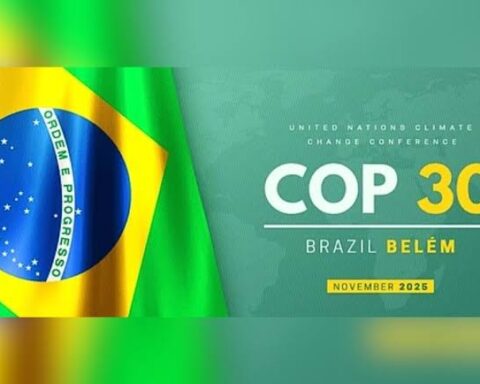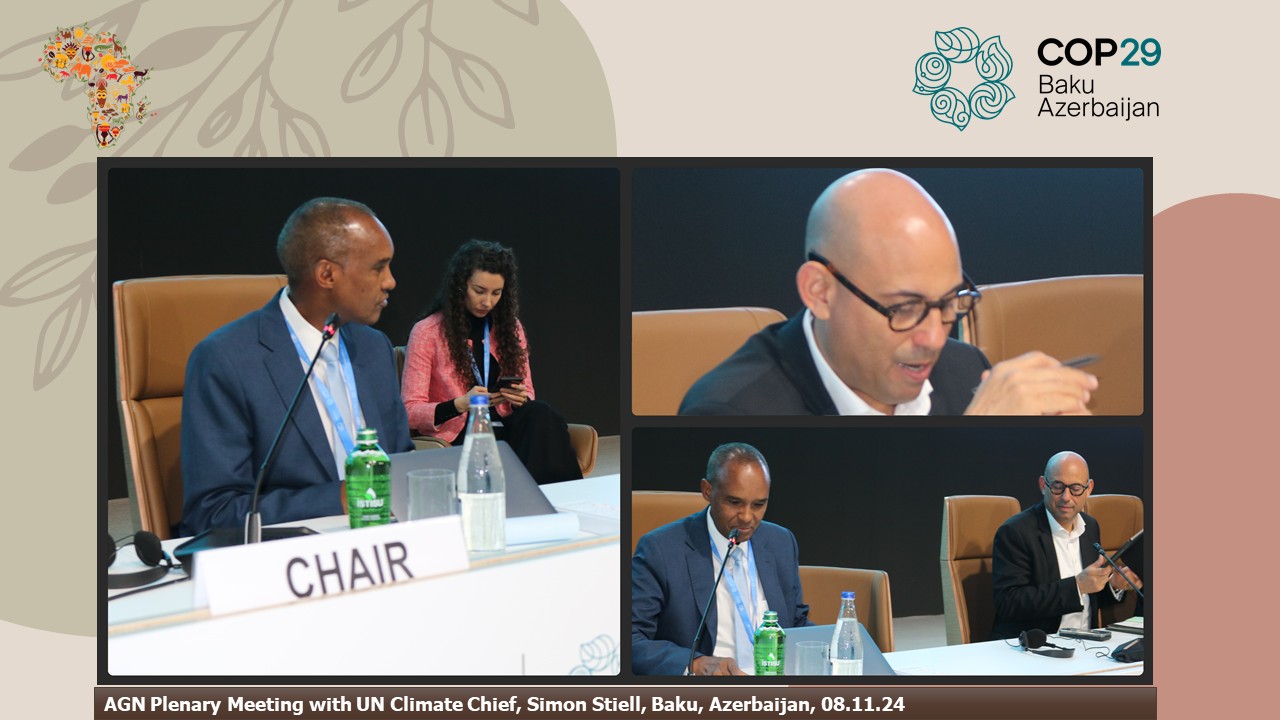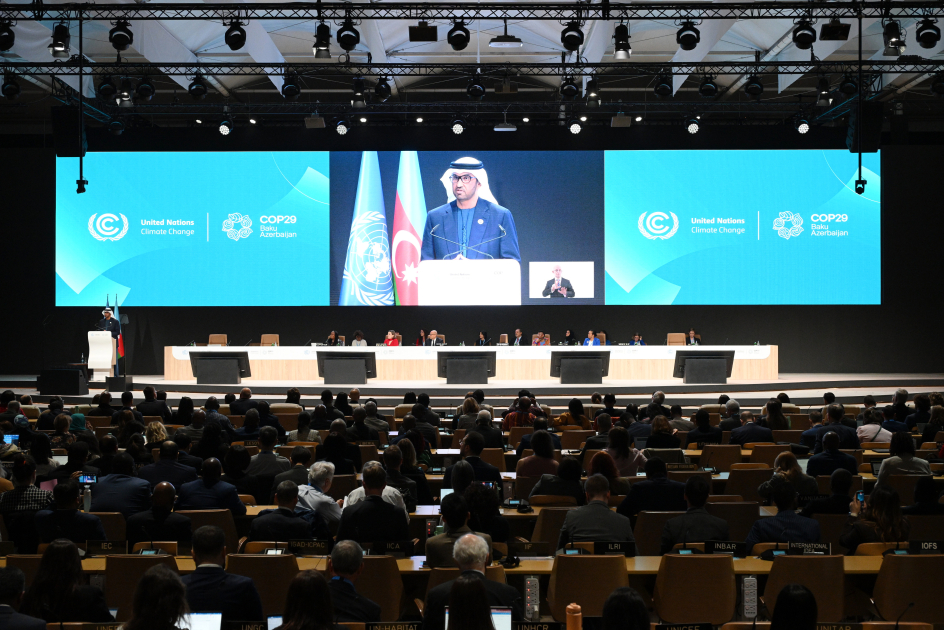As the 2024 United Nations Climate Change Conference (COP29) opens in Baku, today African nations are converging with a unified voice, pushing for transformative change on climate finance and energy transition.
For a continent disproportionately impacted by climate change despite contributing less than 4% of global greenhouse gas emissions, the stakes are high.
Leaders from Africa aim to secure stronger commitments and a fairer international financial framework to help address the continent’s pressing climate and development challenges.
The New Collective Quantified Goal: $1.3 Trillion by 2030
Top on the agenda is the call for a new collective quantified goal (NCQG) on climate finance. The African Group of Negotiators (AGN) is demanding a target of $1.3 trillion per year by 2030, a substantial increase that reflects the unique needs of developing countries.
African nations argue that previous commitments have been inadequate and that the new goal must be ambitious enough to drive meaningful climate action.
“The current state of climate finance is far from sufficient. This target is a necessity, not a luxury, for developing nations facing climate-related disasters,” stated AGN chair and Kenya’s climate envoy, Ali D. Mohamed, highlighting that Africa’s needs have consistently been underfunded.
“I welcome the incoming COP29 President’s assurance that the adaptation agenda will be a key priority.
“Adaptation and climate finance remain top AGN priorities heading into COP29. This aligns with the AMCEN decision we presented earlier, calling for an ambitious and outcome-based New Collective Quantified Goal on climate finance (NCQG),” he said.
He maintained that the NCQG must respond to the evolving needs of developing countries, particularly in addressing the high cost of capital and debt sustainability issues faced by Africa.
“This is crucial, as the current frameworks do not match the scale of investment required for meaningful NDC and NAP implementation, particularly in Africa.
“If we are to have an equitable global climate response, Africa’s special needs and circumstances under the Paris Agreement must also be formally recognized,” he said.
Another critical demand is a robust framework for transparency and accountability.
African nations are pushing for an Enhanced Transparency Framework (ETF) to ensure that climate finance commitments are measurable and traceable.
In addition, African negotiators want a clear, universally agreed definition of climate finance to prevent “greenwashing” and ensure that funds genuinely support climate-related initiatives.
Just Transition and Fairness in the Financial System
Africa’s transition toward greener economies must align with principles of justice and equity, African leaders argue.
The concept of a “just transition” is not only about phasing out fossil fuels but also about creating a system that respects tax justice and adheres to the “polluter pays” principle.
Africa is calling for reforms that prioritize fairness and provide a pathway that does not leave the continent saddled with debt.
To ensure African nations can meet their climate and development goals, the climate finance framework must address access and affordability.
African leaders are stressing the need for “non-debt-inducing finance,” such as grants, and for finance solutions that do not push countries deeper into financial hardship.
“The current climate finance structures are restrictive and, in many cases, leave developing countries with increased debt burdens. What Africa needs is a system that recognizes our realities and provides accessible, affordable solutions,” said Idowu Olumide a young climate advocate expert from Nigeria.
African countries are also advocating for an overhaul of the international financial system, which they argue is skewed against developing nations.
Many African leaders contend that existing institutions do not serve the continent’s needs and often come with conditions that hinder domestic resource mobilization.
Africa’s call at COP29 is for a system that respects its sovereignty and development priorities.
Recognizing the limitations of public funding, African nations are looking toward the private sector to fill funding gaps.
The hope is that market solutions can attract private investments to drive green projects across the continent.
However, private sector funding must be regulated to ensure it aligns with climate goals and social justice.
Energy Transition: Tripling Renewables and Phasing Out Fossil Fuels
COP28 in Dubai marked a significant turning point last year, with global leaders agreeing to triple renewable energy capacity and double energy efficiency improvements by 2030.
African leaders see COP29 as an opportunity to cement these commitments and outline actionable steps for transitioning from fossil fuels to cleaner energy.
Fossil fuel combustion accounts for 86% of global carbon dioxide emissions.
Phasing out both supply and demand for these fuels is essential to maintaining a safe climate.
For African countries, this transition is not only about reducing emissions but also about building resilient economies that can withstand climate impacts.
To ensure that the energy and finance goals from COP28 carry forward, African nations are advocating for a “cover decision” at COP29.
Similar to the Glasgow Climate Pact, this broad overview would provide guidance on priority issues, helping to shape countries’ national climate plans.
With the third generation of national climate plans, known as nationally determined contributions (NDCs), due by February 2025, countries are expected to raise their ambitions for 2035.
African leaders argue that the cover decision should encourage higher targets without limiting the scope of NDCs, setting a strong foundation for climate action across the continent.
An Ambitious New Climate Finance Package for True Transformation
Securing an ambitious climate finance package is critical to unlocking Africa’s potential for green transformation.
African nations contend that a significant shift in finance flows is necessary, not only to meet their NDC targets but to transition their economies sustainably.
The new collective quantified goal must go beyond rhetoric to address the scale of the climate crisis Africa faces.
As COP29 opens in Baku, the demands of African countries underscore the urgency of global climate justice.
For Africa, this is more than an opportunity to negotiate funding; it is a fight for a future that acknowledges and supports the continent’s rights and aspirations in the face of an accelerating climate crisis.
In the words of AGN Chair Ali D. Mohamed, “Africa is here to demand action, not charity. The world owes us a fair chance to build a resilient and sustainable future, and COP29 must deliver on that promise.”
By Dare Akogun








